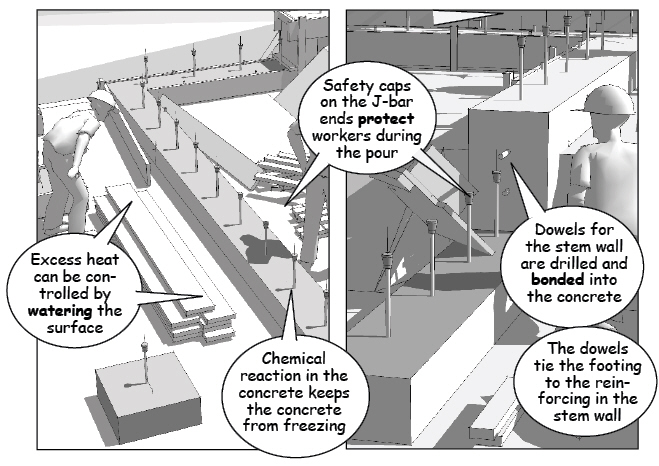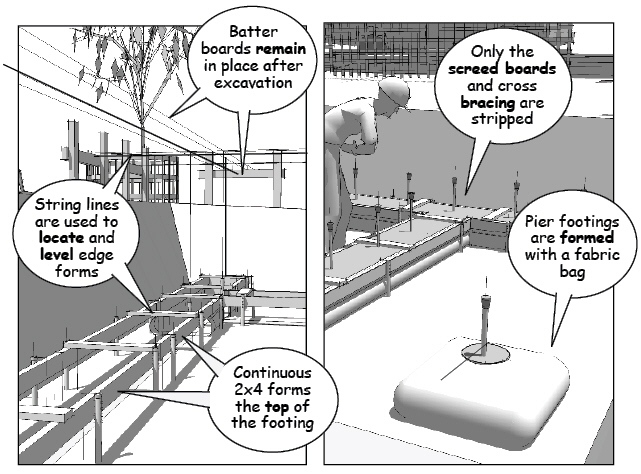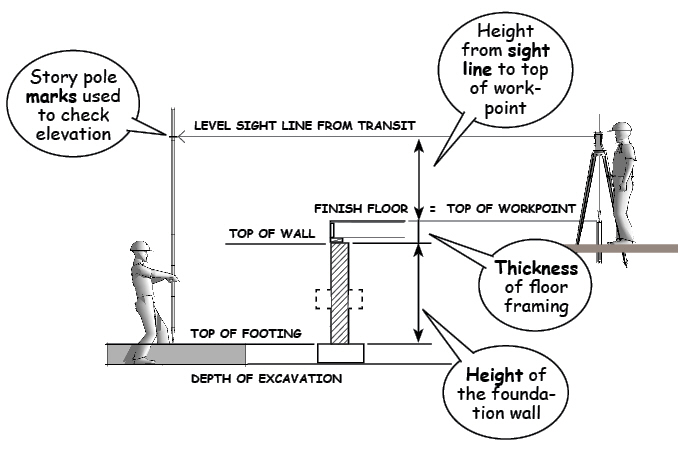Foundation Review (Foundation Checklist (PDF)
The formwork for the concrete footings is laid out on the floor of the excavation using the same workpoint and batter boards that were used to guide the excavation. The forms hold the poured concrete and steel reinforcing. Almost all steel reinforcing wire and rebar are now made from recycled material.

As soon as possible after the concrete has cured, the forms are removed, cleaned and reused in the framing for the house. This minimizes waste, reduces the cost of rigid formwork, and lowers consumption for a more sustainable approach to construction.

Building and stripping the forms and preparing them for reuse is a time consuming process that can be all but eliminated with the use of fabric forms. Fabric forms hang from horizontal screed boards and use the natural shape of wet concrete to shape the concrete.

The foundation stem walls for this house are constructed with standard concrete masonry units called “blocks.” The blocks are laid in a “running bond” using masonry tools and reinforced with horizontal and vertical steel. The steel is embedded in “grout” to form a solid structural system. Depending on site and soil conditions, the same walls could also be built using cast-in-place concrete or insulated forms.

Both masonry and concrete walls raise the frame of the house off the ground. This elevates the foundation and provides a crawl space or basement under the house to maintain and service the building during its life cycle.

A raised foundation reduces potential moisture penetration, mold and mildew, insects and insecticides, and makes it easier to add or modify the house as needs and requirements change over time.
Simplified Construction Modeling Tutorial
For anyone interested in the construction modeling techniques used for the Foundation Phase illustrations, see this quick tutorial.
The tutorial is one of more than 70 videos included in our book “Mastering the Art of 3D Construction Modeling.”
(To be continued…)
---------------------------
The material presented in this series has been taken from our book, “How a House is Built: With 3D Construction Models” The book includes annotated illustrations, captioned text, videos, models, and the 2D Preliminaries.


No comments:
Post a Comment